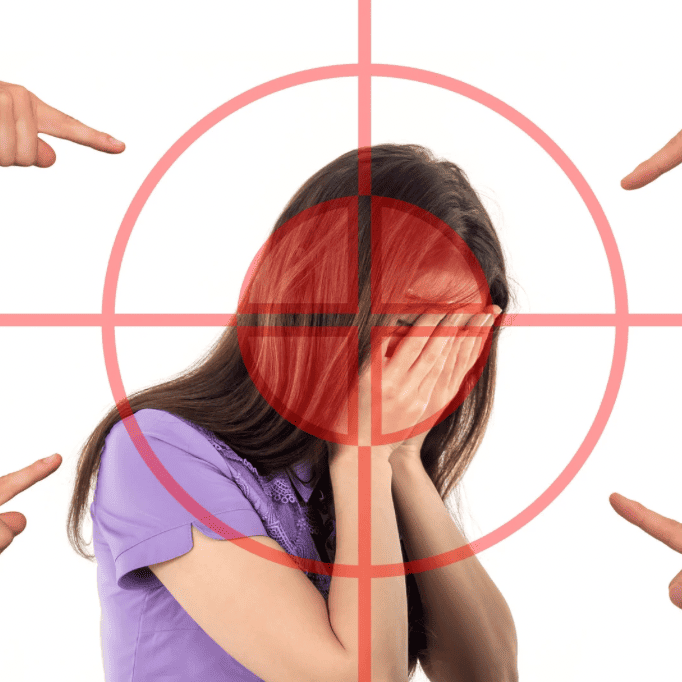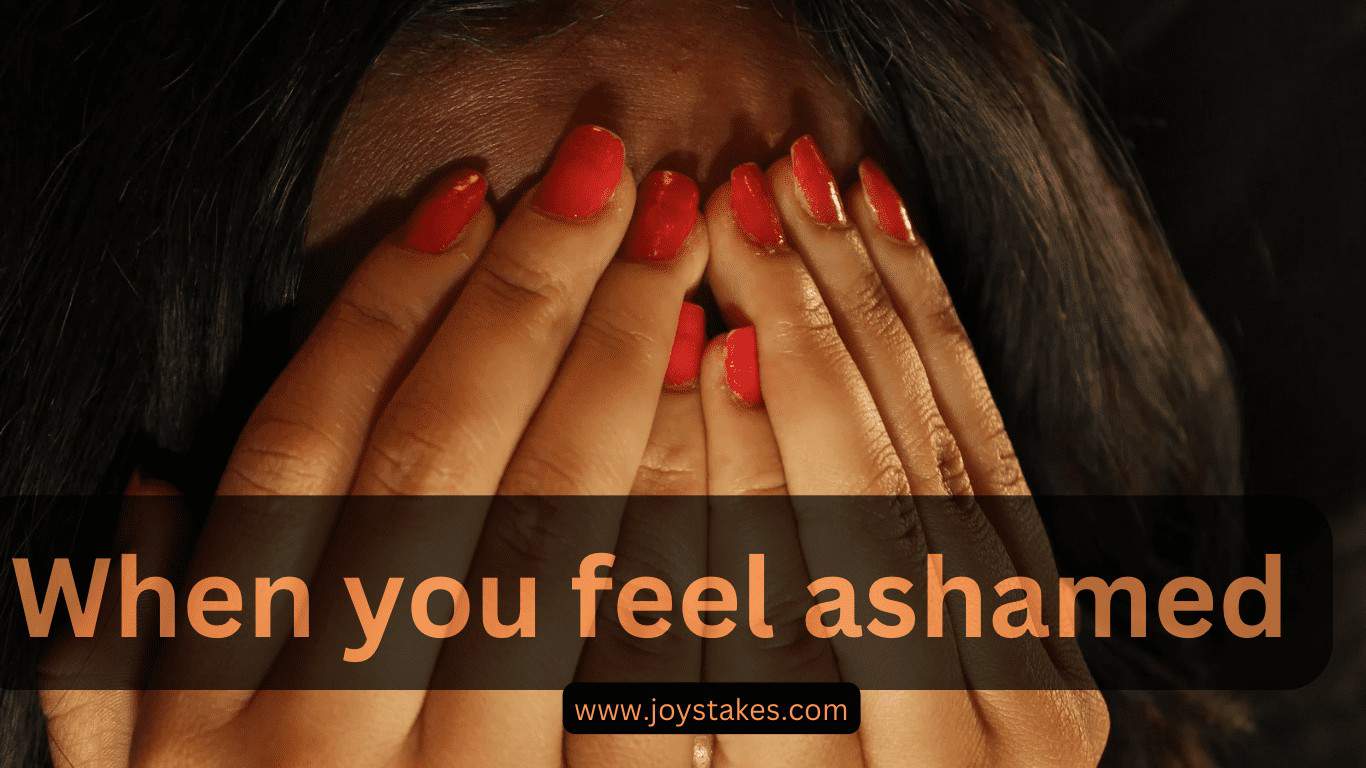Isn’t it curious how young ladies feel ashamed when there’s an unexpected blood stain on their clothes? They haven’t done anything wrong, and yet that sense of shame creeps in.
Or what about those moments when a zipper decides to betray you, or you accidentally spill water on someone?
Why does this happen? Is it the fear of others’ disapproval or our own self-disappointment?
It’s highly likely you’ve experienced shame at some point. Shame often makes us want to disappear, doesn’t it?
But let’s pause for a moment and ask:
What is shame exactly?
Shame is that feeling deep inside when you’ve done something you think others might not approve of. It’s like this inner voice telling you that you’ve messed up, and it triggers that urge to hide away.
The feeling intensifies if we’ve boasted about something that didn’t quite happen, or if we’ve been unkind to someone in a similar situation.
If you never feel ashamed, I’ll be afraid of you. Because it means you could do anything and not feel remorse.
Society and Shame
In certain cases, society wields shame as a weapon to ensure conformity to set societal norms.
Interestingly, a parrot owner once shared an insight with me: a white bird can’t thrive in an area dominated by black birds. It becomes prey.
Just like that, fitting into a social group feels safe. But it’s conditional acceptance though — as long as you play by their rules. Today, they applaud you, but tomorrow they might cast you aside.
As social beings, our desire for acceptance starts in childhood. We crave companionship, and as we grow, society’s approval influences our job prospects, career trajectory, business success, and the support we receive during tough times.
“At its core, shame is about wanting to belong to the group, to be accepted as a good person into the community of those closest to us, and on the other hand encountering whatever feelings arise in considering being cast out of the group into the darkness and unknown. “
Grant Hilary Brenner MD, DFAPA
How to deal with shame

It’s in two folds.
When you find yourself burdened by shame for something that’s not your doing – remember, you didn’t create your own circumstances. Those perceived flaws in your appearance? They’re not your fault.
Imagine feeling ashamed of where you were born, a circumstance you never had a say in.
I know, it’s easier said than done, but be kind to yourself.
And don’t forget to extend that kindness to others too
Our vulnerabilities are as diverse as we are. While you might be confident in your looks, someone else might find strength in their skills, memory, or financial acumen. Remember this when you interact with others. You never truly know their journey.
Validation from others won’t always be there. Maybe you grew up lucky. And you were properly fed on respect and love. It’s a jolt when you step into the wider world, and suddenly, you’re not the center of attention.
Give self-love a chance. It’s a journey worth embarking upon. After all, you’re stuck with yourself for life.
Also, see yourself as God sees you. God loves you unconditionally.
And when your actions lead to shame, look at it as feedback: a sign that you hold a moral compass. Treat yourself kindly. And even if you’re the hot topic today, the spotlight will eventually shift.
Rest. Tomorrow, the sun will rise again, and the breeze will grace your skin. Step by step, day by day, things will improve.

Talk to someone. Shame thrives on secrecy. Share with a compassionate person, with someone who loves you or who can counsel you.
Do better. Because you now know better, do better.
And always remember, God loves you unconditionally.
There is therefore now no condemnation for those who are in Christ Jesus.- Romans 8:1
Do you not know that you are God’s temple and that God’s Spirit dwells in you? – 1 Corinthians 3:16
May you find peace and solace. May you remember that God’s love for you is unwavering. As you journey through life, may you gather the strength to live authentically.

It’s deep but can sometimes be a stronger way towards getting yourself to understand shame differently
Yes it is. Thanks for sharing your thoughts.